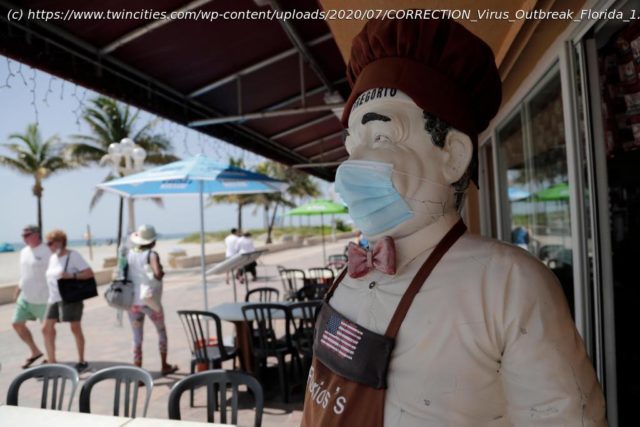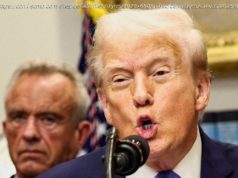The U. S. headed into the Fourth of July weekend with many parades and fireworks displays canceled, beaches and bars closed, and health authorities warning that this will be a crucial test of Americ…
By JOHN SEEWER
The U. S. headed into the Fourth of July weekend with many parades and fireworks displays canceled, beaches and bars closed, and health authorities warning that this will be a crucial test of Americans’ self-control that could determine the trajectory of the surging coronavirus outbreak.
With confirmed cases climbing in 40 states, governors and local officials have ordered the wearing of masks in public, and families were urged to celebrate their independence at home. Even then, they were told to keep their backyard cookouts small.
“This year is a huge bummer, to say the least,” said Ashley Peters, who for 14 years has hosted 150 friends and relatives at a pool party at her home in Manteca, California, complete with a DJ, bounce house, water slide and shaved-ice stand. This time, the guest list is down to just a few people.
Pulling the plug on the bash, she said, was a “no-brainer” because so many of those she knows are front-line workers, including her husband, a fire captain. “I woke up and told my husband I wish it was just July 5,” she said.
Health experts agree this will be a pivotal moment in determining whether the nation slides into a deeper mess. The fear is that a weekend of crowded pool parties, picnics and parades will fuel the surge.
“We’re not going to be arresting people for having gatherings, but we’re certainly going to discourage it,” said Dr. Jeff Duchin, public health director for Seattle and King County.
Those who decide they must gather with a small group of family members need to be careful, he said: “Don’t share utensils, don’t share objects, don’t pass them back and forth, because you’re passing that virus around as well.”
The warnings were sounded after a Memorial Day weekend that saw many people emerge from stay-at-home orders to go to the beach, restaurants and family gatherings. Since then, confirmed infections per day in the U. S. have rocketed to an all-time high, more than doubling.






